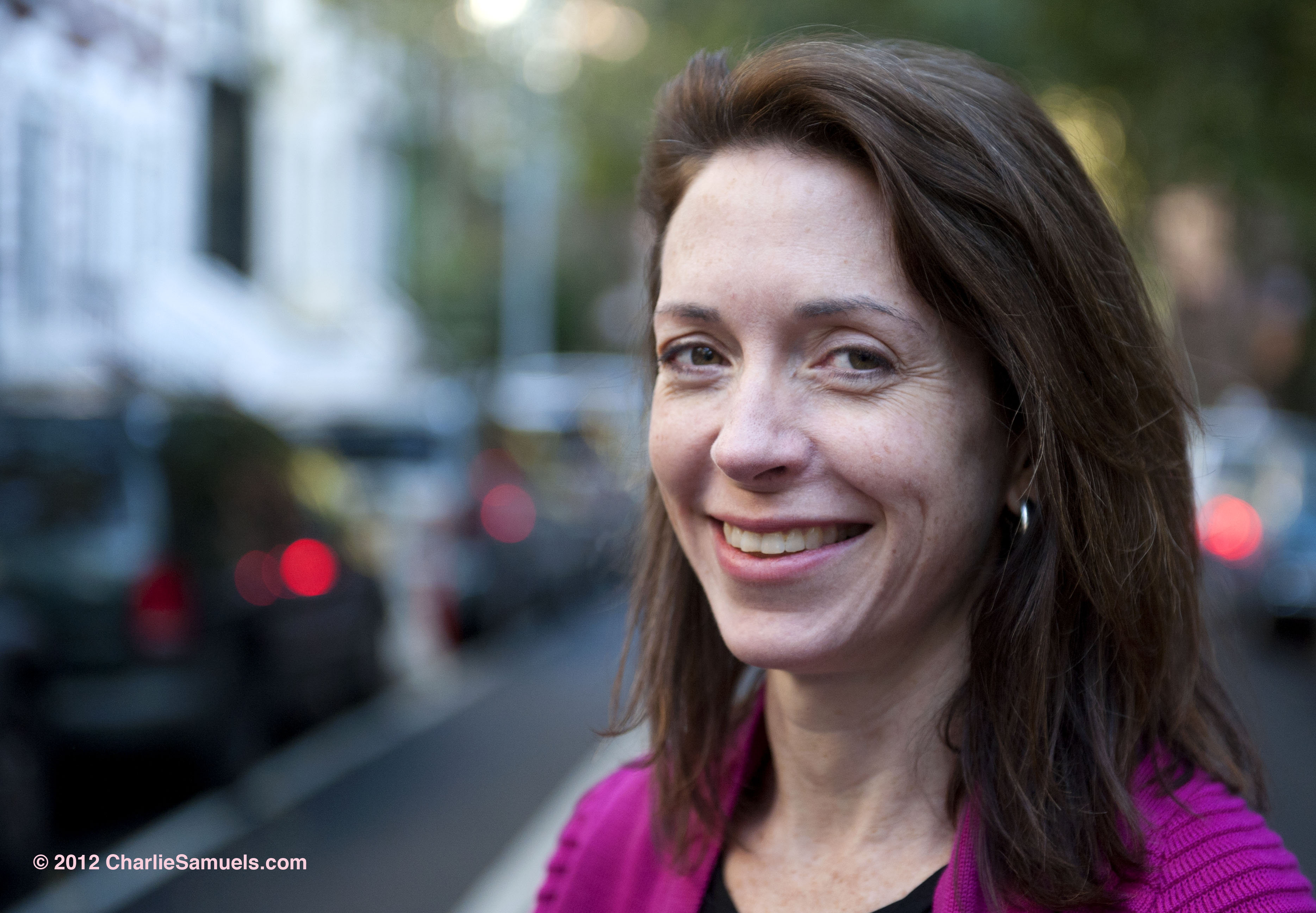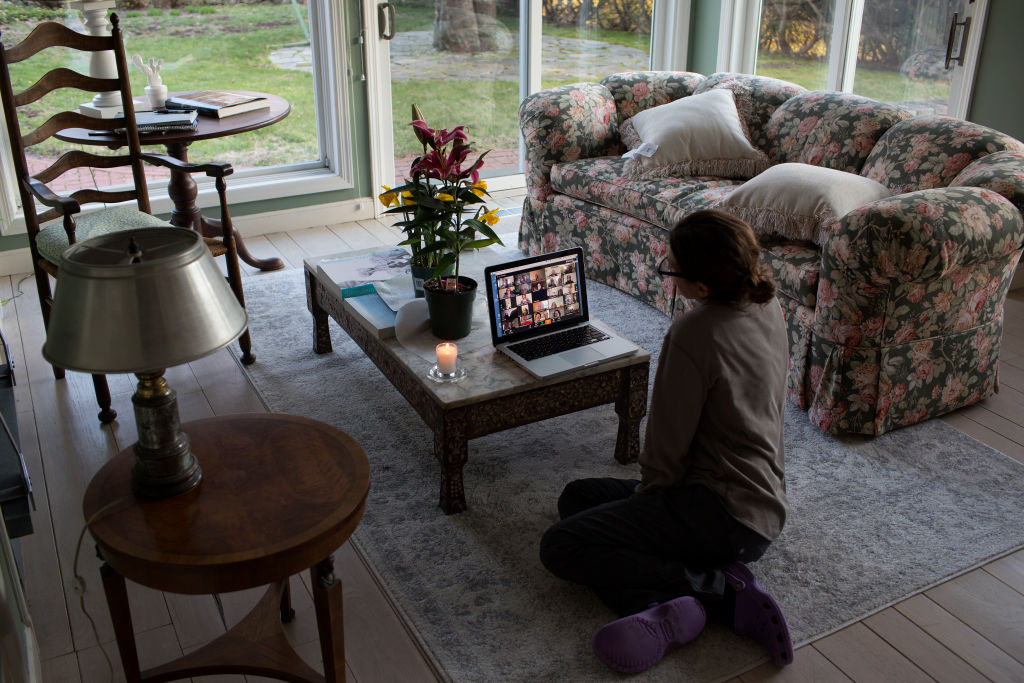Last Saturday, I woke up to a text from my sister. Her father-in-law, Bob Samuels, had died of COVID-19. His partner of 30-years, Karen Brown, passed away several days later. In life pre-COVID, I would be in Saratoga, helping with and taking comfort in the logistics and rituals of death. As an older sister, professor at the Harvard T.H. Chan School of Public Health and clinical psychologist at the Massachusetts General Hospital, I am usually the person in the family everyone relies on to know what to do in a crisis. But instead, I remain in Boston, physically distant and emotionally helpless. Wondering why, when we are told over and over again “we are all in this together” we remain alone in our grief.
Bob and Karen are two of the more than 65,000 Americans who have died in the past four months from COVID-19, whose death toll is rapidly exceeding the 58,200 deaths that occurred over two decades from the Vietnam War. While President Trump praises “our death totals, per million people [as] really very very strong,” the logistics of death and the burden of grief are left to individuals. My sister was told by the hospital she needed to get the bodies removed as soon as possible. After calling a dozen funeral homes in New York where her in-laws lived, she finally located one, in New Jersey, that agreed to pick up the bodies – in two weeks. But, the funeral director warned, it will take over a month for cremation due to the overwhelming demand. She also needed her father-in-law’s social security number to obtain his death certificate. She knew it was at his house but could not retrieve it, given the surfaces were likely infected by the coronavirus.
Exactly 21 years ago this week, I was planning my father’s funeral. My father died unexpectedly, at 56 years of age, in Beijing China, where he and my mom were living at the time. Like my brother-in-law, we were not with my father when he died and did not get to say good-bye. We faced challenging logistics, such as how to get my father’s body from Beijing to New Jersey. But the similarities end there. My father’s company, his Chinese colleagues, extended family and friends, and his church rallied around our family, sharing our burden and giving us the space to begin the long process of mourning.
My brother-in-law is deprived of this support and the necessary rituals of mourning. When my father died, friends dropped by, without being asked, leaving food and helping with errands and airport runs. Physical distancing makes much of that impossible, even sharing food is questionable. My father’s funeral allowed us to celebrate his life and connect with his wide network of family, friends, and colleagues. Gatherings of people from different households are prohibited. Sure, they could have a virtual memorial, but my sister and brother-in-law are, like many of us, zoom-fatigued. So, the memorial date is ‘to be determined,’ postponed for some unknown, future time when – hopefully – we can all be together.
Due to physical distancing, the spontaneous, reminiscing that occurs when people casually mingle after someone dies, and that experts agree is critical to the recovery process, will not happen. When my father died, it was these unexpected interactions that were powerfully healing. The Georgian mechanic who fixed my father’s car came by our house, hugged me, and told stories about me how he and my father argued about Russian politics. My father’s childhood friend, wheelchair-bound from chronic lime disease, revealed at the funeral that my father had stayed in touch with him all these years and even sent him money regularly (unbeknownst to my mother). Deprived of these kinds of interactions, we are told we need to be more creative taking advantage of the tools provided by technology and social media that were not available to my family two decades ago.
Expert advice on how to mourn during the COVID-19 pandemic consistently begins with the need to acknowledge the grief. The advice is useful but, like the logistics of death, puts the burden of mourning solely on the individual and their family. Unlike more traditional losses, like the death of my father, loss during the COVID-19 pandemic is a universal experience that requires a collective response. In addition to the stunning loss of life, the physical distancing measures needed to battle COVID-19 have resulted in the loss of 30 million jobs, multitudes facing bankruptcy and eviction, and nationwide cancelations of graduations, weddings, bat mitzvahs and other rites of passage. COVID-19 has deprived us of the small, spontaneous physical interactions, we took for granted – hugging a friend you have not seen for a while, high-fiving strangers at your local sports bar when your team scores, flirting with the person who sits next to you on the airplane. Greeting your neighbor with a smile. From the end of open-plan offices, the permanence of telehealth, and the movement away from solely campus-based education, the news is filled with articles on how life, post-COVID-19, will never be the same again.
As the losses due to COVID-19 accumulate, we need leadership at the national and local level that acknowledges the full extent of our collective grief – perhaps in a national day of remembrance and healing. By mourning together as a nation, we may also begin the long process of create a collective vision for a post-COVID-19 future.
For the state of the science on COVID-19, I encourage you to follow the work of my colleagues at the Harvard Chan Center for Communicable Disease Dynamics: https://ccdd.hsph.harvard.edu/research/ncov-making-sense-of-an-epidemic/
——
For resources on mental health during COVID-19, go here: hsph.me/covid-19-mental-health


